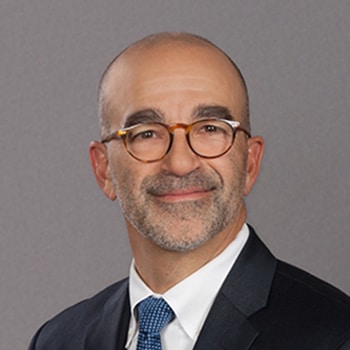
At the time of the COVID-19 outbreak, the city of New Britain, Connecticut, was just beginning a four-year renewal of its curriculum. Given the circumstances, Jonathan Costa, Assistant Executive Director of EdAdvance, a Regional Educational Service Center (RESC), wanted the district faculty’s thoughts and feedback on their return to school in the fall so his team could better respond to their needs.
“We wanted to make sure that those units really reflected where the faculty and staff were at so that when we brought the material to them, it would address what they needed,” Costa explains. “So, I ran an exchange with the teachers, and the question we asked was: What are your thoughts, concerns, and ideas as we contemplate a return to in-person schooling?”
Costa and his team weren’t expecting the response they got.
ThoughtExchange highlights important conversations that aren’t taking place
“I was thinking we were going to get some instructional guidance,” Costa shares with us. However, as he quickly discovered, “If you don’t feel safe, you’re not going to be thinking about building a good lesson plan.”
When Costa saw the trending thoughts in the exchange, it was clear that instruction wasn’t what people were looking for. “I could feel the intensity of everyone’s personal concerns for health and safety—their inability to imagine how we could safely bring people back to school without a guaranteed vaccine or therapy.”
With the exchange results, Costa could clearly show his colleagues what was really on people’s minds. “I told our team that we need to not only rethink how we’re approaching our project, but the superintendent needs to know where their staff’s heads are at if they’re thinking about reopening.”
It wasn’t long before the exchange results reached the desk of Dr. Miguel Cardona, Commissioner of Education for the State of Connecticut. At his request, they used ThoughtExchange again, this time to get the thoughts of teachers and parents across the entire state.
"[ThoughtExchange] has given us a set of data points that gives us confidence that if we address those issues—and do it thoughtfully—we’ll have a plan that will generate public confidence in us."Jonathan Costa, Assistant Executive Director of EdAdvance, Regional Educational Service Center
“40 thousand participants, 50 thousand comments, 1.2 million ratings. We hit send and 1.5 million different things happened.”
The RESC Alliance, which comprises Connecticut’s six RESCs, used ThoughtExchange to connect with teachers and parents statewide to get their thoughts—a process that Costa says was “an exciting thing to be part of.”
“It was an amazing weekend,” Costa says of the exchange’s opening days. The level of engagement left him with “an image of the odometer spinning” as he saw thousands of thoughts flooding in.
What really excited Costa were the important (and surprising) insights that came with that level of participation. In one thought, a participant asked whether or not students had been involved in the conversation about if and when the district should reopen its schools. The Chief Performance Officer for the Connecticut State Department of Education—who is not only a state official but also a parent—participated in the exchange and approached Cardona with the idea of polling Connecticut’s entire student population with ThoughtExchange.
“We originally expected that the data would help frame the rest of this year,” says Costa. “What it made clear was that we weren’t going back this year, and now those issues are helping to frame how we plan to go back to school in the fall.”
An alternate timeline without ThoughtExchange
In a play on alternate timeline episodes of our favorite TV shows, we asked how things might have unfolded without ThoughtExchange.
Costa led his response by expressing the need for frames of reference in making important decisions, rather than relying on gut feelings and assumptions. “It would have just been the feelings of 10 people in the room asking, ‘What do you think parents are concerned about?’” he guesses, explaining that leaders are often left to get in character when making decisions. “If five out of the 10 people in the room were parents, they’d have had to put on their ‘parent hat’” and try to guess.
Making well-informed decisions can be a challenge, even more so as they scale in size, numbers, and cost. “You just try to do your best based on the information you have available to you,” Costa admits. “There are piles of information that you have to take into consideration: medical and health data, financial capacity within districts, and knowing what people feel and believe.”
According to Costa, it’s that last point—knowing what people feel and believe—that often stands between leaders and doing the right thing. “Without that data, you’re just guessing. [ThoughtExchange] has given us a set of data points that gives us confidence that if we address those issues—and do it thoughtfully—we’ll have a plan that will generate public confidence in us.”
The cost of not using ThoughtExchange
When asked what it would have cost the state to get the amount of participation and insight provided by ThoughtExchange in another way, Costa stifles a chuckle. “It’s not even a reasonable question. Even if you could write a check that big, the logistics of getting 40,000 people to participate—and in the middle of a pandemic...it’s not gonna happen.”
To highlight this point, Costa shares examples of the RESC Alliance’s previous efforts. “We’ve been asked to run focus groups and town halls before and had three or four people show up. We’d then use ThoughtExchange and get participation from 800 people.”
Nevertheless, Costa entertained the question by doing the math for us. “So, if we did twenty meetings in six regions at $500 per facilitator per meeting... and then what it would take to collate it... the number would be gigantic. And it couldn’t happen,” he stresses, “even if you had the money.”
"I don’t know any other tool that you could use to ask an open-ended question [to 40,000 people] and make sense of the data on the other end."Jonathan Costa, Assistant Executive Director of EdAdvance, Regional Educational Service Center
ThoughtExchange simplifies the conversation, even when the topic isn’t easy
Although COVID-19 is a hot topic for everyone right now, Costa is certain that the ease of using ThoughtExchange is what helped the state get the participation results it did. “You don’t have to be a sophisticated user of technology to participate,” he reflects, “you just have to want to share something. ThoughtExchange makes it easy to do that.”
Costa continues by saying that the magic of ThoughtExchange is that it lets people express themselves in their own words, rather than “being forced to respond to a survey question.” Closed-ended survey questions drive a narrative, Costa explains, whether intended or not. “No matter how you ask [a survey question], you’re framing it in a specific way.”
Leaders will be happy to know that ThoughtExchange’s ease of use isn’t limited to the participant experience. Features like the Discover Dashboard make it easy to get actionable results. “I don’t know any other tool that you could use to ask an open-ended question [to 40,000 people] and make sense of the data on the other end,” Costa says.
What’s next for Connecticut?
“We now have a head start on what we need to get done,” Costa explains.
Decision-making can be an expensive quagmire of assumptions, misconceptions, and unconfirmed hunches. But Costa says that ThoughtExchange has given Connecticut educators a game-changing advantage: clarity.
The RESC Alliance has used ThoughtExchange for decisions big and small, and this may be its biggest decision to date. But with ThoughtExchange, the RESC Alliance was able to gather robust data for decision makers that’s easy to understand, while creating a safe space for its whole community to share their thoughts and concerns. Decisions don’t have to be bigger than the people they affect.

Share this Story!


